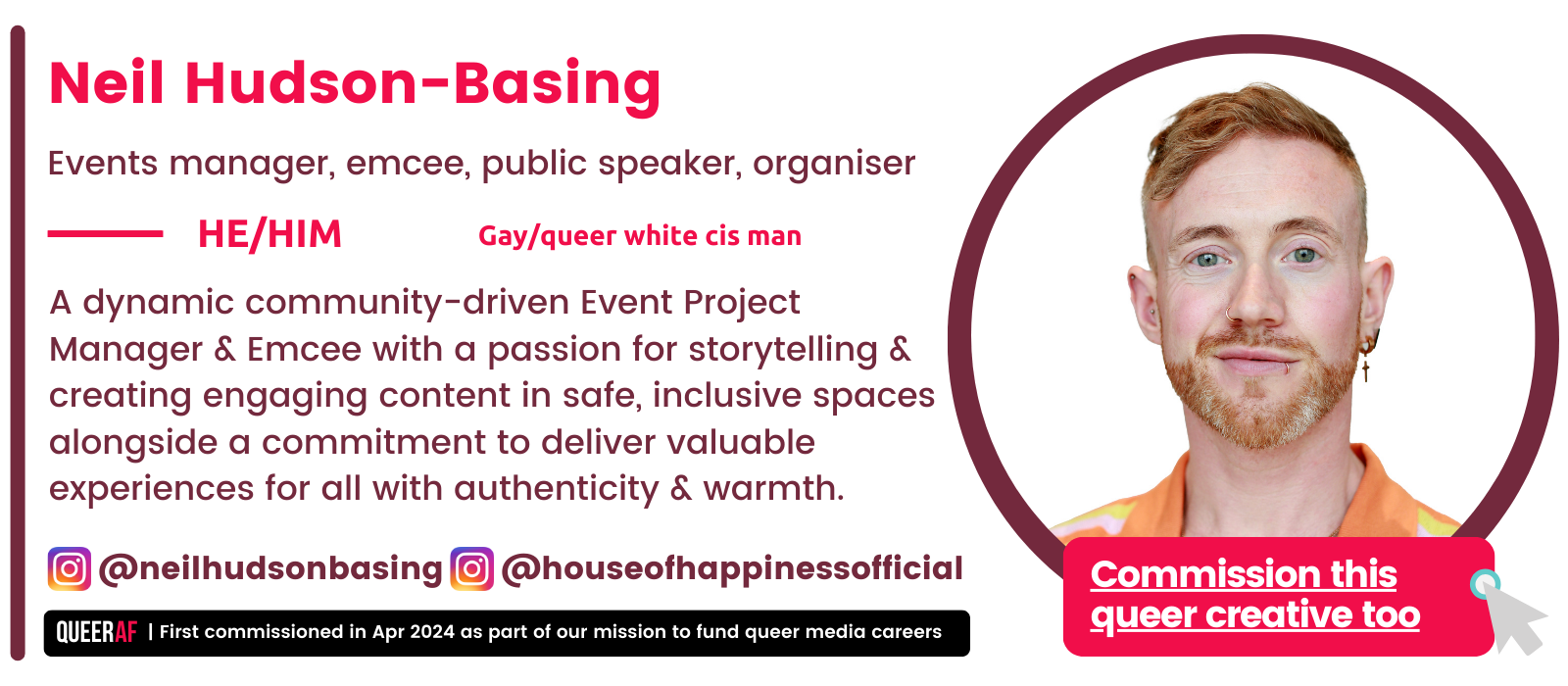
Being queer does not have to revolve around partying or getting wasted. It doesn’t for me. Well, not anymore.
I was once known for being a party gay. And I wasn’t alone.
From our perceived love of fancy parties to drug-fuelled raves and chemsex, our community has a complex reputation. But given that media representation of queer lifestyles has historically been somewhat one track, perhaps that’s more about many of us growing up thinking there is only one way to be queer.
Thankfully, the stories we see represented are now becoming more diverse. I love Queer As Folk as much as the next 40-something-year-old, but it certainly set a tone.
Many queer spaces are often centred around alcohol and substances, especially Pride events.
Pride for me used to mean getting as messy as possible on the way there, during and after. It was fun, but that was the extent of it.
It looks a lot different these days since going sober over five years ago. I am now showing up fully for our community and myself.
With a clear head, I have a deeper understanding of why it’s so important, especially right now.
Being a Londoner, I’ve loved exploring the range of Pride events that the capital has to offer. These have provided me with an opportunity to be a better ally to individuals and groups within the LGBTQIA+ community beyond the big ones - UK Black Pride, London Trans Pride, Bi-Pride UK - which each offer something important, unique and special.
Navigating ‘the scene’ and Pride as a sober person isn’t always easy. What’s out there is limited.
It’s one of the reasons I created The House of Happiness, a queer-led & delivered sober club night - to help address the lack of queer sober spaces available.
We’re showing that sober definitely isn’t boring! More importantly, I’ve found it has led to me finding community and meaningful connections which have changed my life.
When you dig deeper, you’ll find there are many wonderful options out there providing sober offerings, from community centres to cultural spaces and activities, events and MeetUp Groups. They’re rare, but they exist. And they’re needed, with more and more people opting for healthier lifestyles.
Over 20% of adults now identify as non-drinkers. For Gen-Z the proportion of people opting for low-to-no drinks is much higher, at 38% - ITV
In an interesting correlation, the number of people identifying as LGBTQIA+ is on the increase - NBC
It makes sense that demand is rising across entertainment, hospitality and tourism.
Us queer people are innovators and disruptors. Being queer is all about challenging ‘the norm’, just as going sober does. In a way, going sober is super queer!
Queers have an incredible history of creating spaces, communities and movements when we don’t feel represented elsewhere. That’s why I’m advocating for, and creating sober spaces - and you should feel empowered to do the same if what you’re looking for doesn’t yet exist.
My new group of sober friends make attending events like Pride a much more enjoyable experience – minus the hangover.
You don’t have to miss out on the fun simply because you choose not to drink. You can be queer, sober and proud!

Get the Queer Gaze in your inbox each week with our free weekly newsletter or pitch to write an edition for us now.

Fighting for our rights can feel, at times, unobtainable. But the joy and hope spread across Lesbian Visibility Week is a testament to how, no matter what the papers say, people care about LGBTQIA+ folk.
That's why we desperately need to improve the media landscape.
We're doing that by helping queer creatives improve the way they communicate about our rights.
We're obsessed with communication. Knowing what's happening isn't enough. Awareness isn't enough. We need action.
That's why we don't just write the news, but we make sure you understand it.
When you know why it's happening, your limbic brain (the bit that processes your emotional responses) gets very excited. It drives action. Purpose. Understanding.
That's what we're teaching our writers about - not just good journalism practices, but how to show people why queer rights actually rock.
Alongside this massive newsletter, it's a big commitment. We're up to the task, but we can't do it without you. If you think what we do is valuable, please consider a membership.
Join over 225 paid QueerAF members who help keep our newsletter free for everyone:











